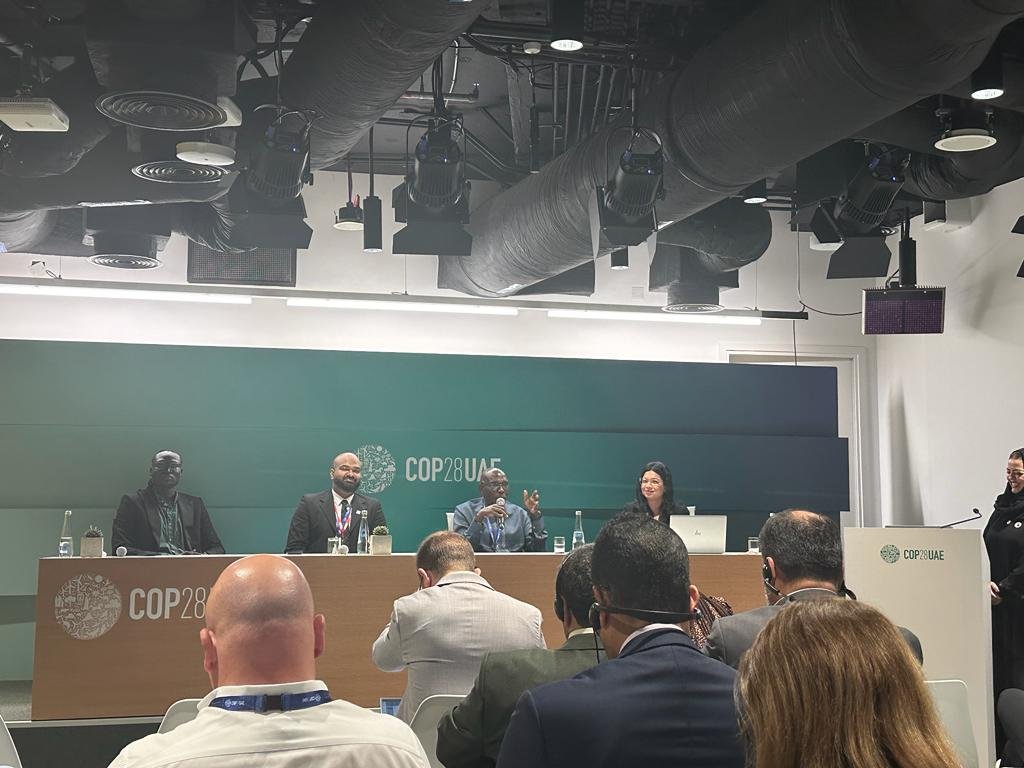Today, for the first time ever, a health day was hosted at COP. The day focused on the interconnection of climate change and human health, but one question that reverberated across Expo 2020 was: why has it taken so long?
John Kerry, the US climate envoy, called the delay “astonishing,” something echoed by World Health Organization (WHO) Director-General Tedros Adhanom Ghebreyesus, who said that the threats to health from climate change are “immediate and present.”
Indeed, the effects of climate change on health can no longer be ignored.
Seven million people die from air pollution globally each year, while the number of people who have lost their lives to high temperatures, and extreme weather has rapidly increased.
Not only are increasingly high temperatures inducing premature death, global warming is also spreading infectious diseases into new regions.
Further, a report by the Cross Dependency Initiative (XDI), revealed yesterday that without the rapid phase-out of fossil fuels, a staggering one in 12 hospitals around the world are at risk of full or partial shutdown.
We have the tools and capabilities to prevent further deaths, environmental damage and climate disasters, but the changes that need to be made are not happening quickly enough. One recent report by the European Environment Agency (EEA), for example, found that half of the 500,000 air pollution-related deaths in the EU alone in 2021, could have been avoided by cutting pollution to recommended limits.
The disregard for human life is astounding, and the decisions being made by the powerful few are putting the lives of millions in danger.
In the hubbub and excitement of COP28, with world leaders, VIPs, and company heads congregating and talking the talk we’ve all become so accustomed to hearing, it’s essential that this COP does not lose sight of what’s important, the people who are on the front line of the climate crisis.
“Climate change is a human crisis”
Too often, we talk about climate change in abstract terms. We throw around jargon and repeat terms like “1.5-degree North Star.” We hear world leaders call for “action” while ramping up new oil projects, and see both government and the private sector alike make promising-sounding pledges that rarely deliver. And, for too long, climate conversations have also failed to address the interconnected nature of ongoing crises.
Speaking about this to ESG Mena, Nhial Deng, South Sudanese refugee, writer, youth advocate, and community activist and organiser, said: “One of the big key messages is that a lot of these crises are interconnected. We need intersectional approaches and I don’t think we can talk about intersectionality without putting people at the centre.”
“We cannot see climate change as just another crisis. Climate change is a human crisis. People are losing their homes, losing their livelihoods, and losing their lives, because of disasters brought about by climate change,” he added.
Deng emphasised the importance of inclusion and representation at climate summits like COP28, where people who share similar experiences to him are able to have a platform and a voice in the climate conversation. Further, he said that this will ensure the solutions we design are “kind, compassionate and rooted in humanity,” outlining that the most effective solutions are informed by the voices of those living through the crises.
“So my big hope is that this COP will centre people, and elevate the voices of people on the front line.”
Big health announcements
While the heat rages on in Dubai, day four’s focus cooled on high-profile appearances, but there were yet more pledges.
Day four saw global donors at the 2023 Reaching the Last Mile Forum commit a collective US$777.2 million to accelerate the progress toward eliminating neglected tropical diseases (NTDs).
Reaching the Last Mile came together with the Gates Foundation and global partners to expand the Reaching the Last Mile Fund (RLMF) from $100m to $500m, to increase the fund’s reach from seven countries to 39 across Africa and Yemen.
Speaking about this, Bill Gates said: “Climate change is inextricably linked to poverty and diseases affecting millions. That is why funding for lifesaving healthcare is critical and why we’re joining global partners to build on the tremendous progress of the Reaching the Last Mile Fund to date, and accelerate the elimination of LF and river blindness across Africa and beyond.”
The day also saw the first ever Climate and Health Ministerial to be held at a COP, with attendance from ministers of health and senior health delegates from over one hundred countries.
Elsewhere, on the first thematic day, the ‘Getting Ahead of Disasters Charter’ (the Charter), was also launched, which outlines principles for collaborative action to manage climate-related risks and protect vulnerable populations.
Plant-based solutions
On the interconnectedness of crises, at a press conference this morning, plant-based solutions were discussed in relation to health.
Here, Sabrin Rahman, Director of Partnerships, COP28 UAE, and Managing Director – Head of Sustainability for Europe, the Middle East, North Africa and Turkey, HSBC, said: “There needs to be a pivot in our eating habits, and our procurement needs, as well as financial flows.”
“Sectors have to come together,” she added, highlighting the need to mobilise private sector players to scale and expand affordability.
Further, Rahman noted the unique opportunity that COP28 offers: “We have over one hundred world leaders, we have top private sector players, we have financiers, we have venture capitalists, we’ll never have this gathering again.”
“If you want impact, now’s the time,” she said.




